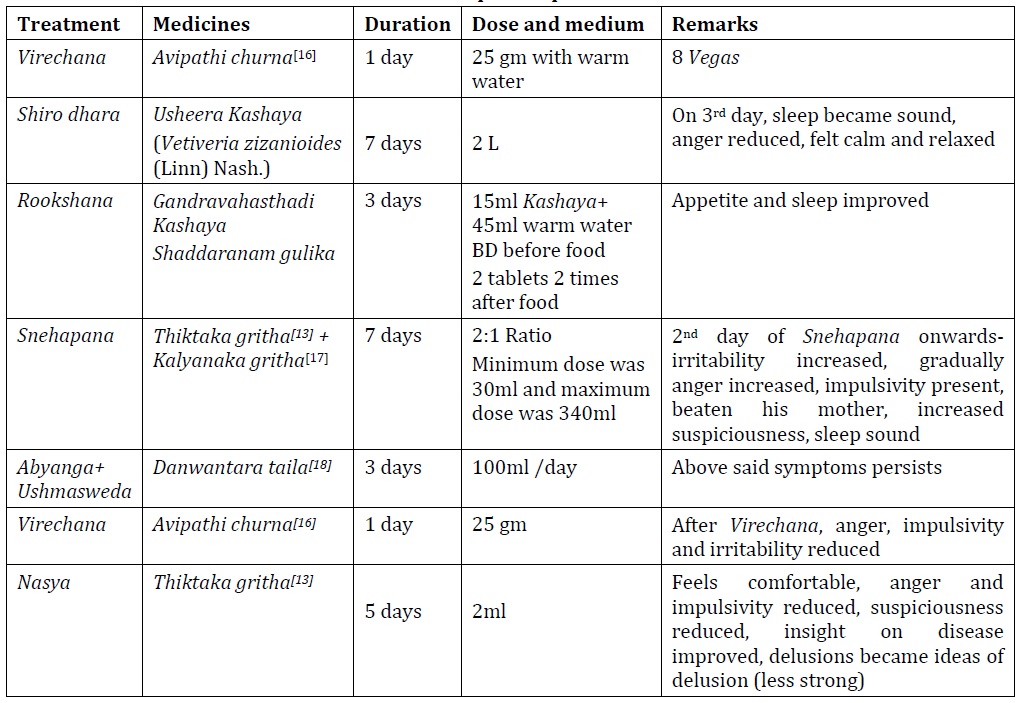Schizophrenia - An Ayurvedic Management
Abstract
Schizophrenia is a severe mental condition that can cause significant disability in which people interpret reality abnormally. If neglected, it leads to serious issues that impact all facets of life. It affects about one percent of the world’s population. According to World Health Organization (WHO) schizophrenia affects approximately 24 million people worldwide, which is equivalent to 1 in 300 people (0.32%). It involves a range of problems with cognition, behavior and emotions. Signs and symptoms may vary, but usually involve delusions, hallucinations or disorganized speech, and reflect an impaired ability to function. The pathomechanism of schizophrenia is not fully understood and current antipsychotics are characterized by many limitations. A 30 year old male presented with the symptoms of increased anger, impulsivity, irritability, feeling that others are talking about him and trying to harm him, somebody is following him and controlling all his actions. Others are able to access to his thoughts through mobile phone, unable to concentrate on his works, beating mother since 8 months. Paittika unmada symptoms such as Amarsha (keeping rivalry), Krodha (anger), Swesham paresham va abhidravana (harming self and others), and Kaphaja unmada symptoms such as Rahaskamata (likes sitting alone), Thushnibaava (reduced speech) were the presenting symptoms, so the condition was diagnosed as schizophrenia as per ICD 11 (Paittika unmada with Kaphanubanda) and treatment protocol was selected according to the predominant Dosha level. The assessment tool used was PANSS (Positive and Negative Syndrome Scale). After Shirodhara, Snehapana, Virechana, Nasya and Samana PANSS Score reduced from 66 to 34. In the current Ayurvedic protocol showed better outcome in the management of Schizophrenia. Future research should focus on the potential of the Ayurvedic protocol for better management and an enhanced quality of life.
Downloads

Copyright (c) 2023 International Journal of Ayurveda and Pharma Research

This work is licensed under a Creative Commons Attribution-NonCommercial-ShareAlike 4.0 International License.






